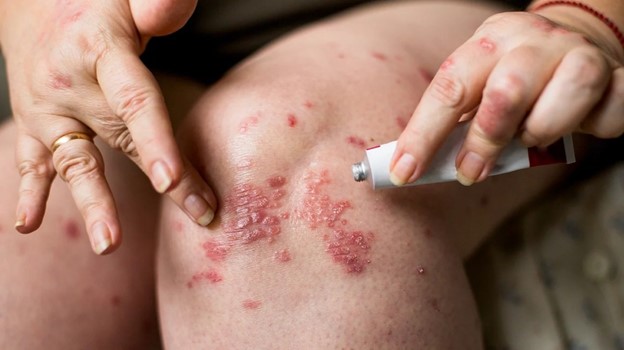A nurse participating in lead screening at a community center.
The nurse should instruct parents to bring their children back for rescreening in a year for which of the following laboratory values?
10 mcg/dL
18 mcg/dL
4 mcg/dL
44 mcg/dL.
The Correct Answer is C
The correct answer is choice C.
Choice A rationale:
A lead level of 10 mcg/dL is above the CDC’s reference value of 3.5 mcg/dL and would require more immediate follow-up and intervention, not just rescreening in one year.
Choice B rationale:
A lead level of 18 mcg/dL is significantly elevated and would necessitate immediate medical intervention and frequent monitoring, rather than waiting a year for rescreening.
Choice C rationale:
A lead level of 4 mcg/dL is slightly above the CDC’s reference value of 3.5 mcg/dL. While it is concerning, it may be appropriate to rescreen in one year if no other risk factors are present.
Choice D rationale:
A lead level of 44 mcg/dL is dangerously high and requires urgent medical treatment and frequent follow-up, not just rescreening in one year.
Nursing Test Bank
Naxlex Comprehensive Predictor Exams
Related Questions
Correct Answer is D
Explanation
Treatment of eczema may start with regular moisturizing and other self-care habits.
If these don’t help, a healthcare provider might suggest medicated creams that control itching and help repair skin.
Choice A is not correct because woolen clothes can irritate the skin and worsen
eczema.
Choice B is not correct because fabric softeners can irritate the skin and worsen
eczema.
Choice C is not correct because bubble baths can dry out the skin and worsen eczema.

Correct Answer is D
Explanation
A. Semi-Fowler's. While this position can help with drainage, it is generally not the first choice immediately after VP shunt surgery.
B. Prone.This position is generally not recommended as it can cause discomfort and increase intracranial pressure.
C. Trendelenburg. This position is contraindicated as it can significantly increase intracranial pressure.
D. on the unoperated side. This position helps prevent pressure on the operative site and facilitates drainage of cerebrospinal fluid. It also reduces the risk of complications associated with increased intracranial pressure.
Whether you are a student looking to ace your exams or a practicing nurse seeking to enhance your expertise , our nursing education contents will empower you with the confidence and competence to make a difference in the lives of patients and become a respected leader in the healthcare field.
Visit Naxlex, invest in your future and unlock endless possibilities with our unparalleled nursing education contents today
Report Wrong Answer on the Current Question
Do you disagree with the answer? If yes, what is your expected answer? Explain.
Kindly be descriptive with the issue you are facing.
